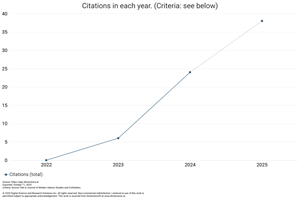Validity of Sale and Purchase Agreement Using Coin Flip System: A Perspective from Indonesian Civil Code and Islamic Commercial Law
DOI:
https://doi.org/10.59653/jmisc.v3i03.1904Keywords:
Sale and Purchase Agreement, Coin Flip, Civil Code, Islamic Commercial LawAbstract
The Coin Flip system is an innovative method in sale and purchase agreements, where the price is determined by a coin toss. It is used when negotiations between the buyer and seller reach a deadlock, introducing a random element to the price determination, which differs from traditional methods. This study aims to analyze the validity of the Coin Flip system under both positive law (the Civil Code) and Islamic commercial law (fiqh muamalah). The focus is on whether the system meets the requirements for a valid agreement in the Civil Code and Islamic law. Additionally, the research examines the issue of maysir (gambling) involved in this system, which is crucial in sale agreements. The study employs a normative juridical method with a conceptual and legislative approach, utilizing primary, secondary, and tertiary legal sources. Data was collected through literature review and analyzed qualitatively. The findings show that the Coin Flip sale agreement is valid according to the Civil Code, as it satisfies both subjective and objective conditions, including a voluntary agreement between legally competent parties with a clear price and valid object. However, the system is not valid under fiqh muamalah, as it lacks a clear and definite price and includes elements of maysir (gambling), which is prohibited in Islam.
Downloads
References
Aditya, Ahmad Muzakki. (2019). Tinjauan hukum Islam terhadap jual beli dengan sistem Real Money Trading di Game Mobile Legends. Undergraduate thesis, Universitas Islam Negeri Sunan Ampel Surabaya. http://digilib.uinsa.ac.id/33770/.
Al-Assal, A. M., dkk. (1999). Sistem prinsip dan tujuan ekonomi Islam. Bandung: Pustaka Setia.
al-Qardhawi, Y. (2010). 7 kaidah utama fikih muamalah (F. Hasmand, Trans.). Jakarta: Pustaka al-Kautsar.
Amiruddin, & Asikin, Z. (2012). Pengantar metode penelitian hukum. Rajawali Pers.
Arifin, M. (2020). Keabsahan Akad Transaksi Jual Beli dengan Sistem Dropshipping dalam Perspektif Ekonomi Islam. Lisyabab : Jurnal Studi Islam Dan Sosial, 1(2), 279-290. https://doi.org/10.58326/jurnallisyabab.v1i2.34.
Article 1320 of the Indonesian Civil Code.
Article 1457 of the Indonesian Civil Code.
Bahtiar, W. (1997). Metode Penelitian. Jakarta: Logos.
Dickinson, D. L., & McEvoy, D. M. (2021). Further from the truth: The impact of moving from in-person to online settings on dishonest behavior. Journal of Behavioral and Experimental Economics , 90. https://doi.org/10.1016/j.socec.2020.101649
Djuwaini, D. (2008). Pengantar Fiqh Muamalah. Yogyakarta: Pustaka Pelajar.
Douneva, M., Jaffé, M. E., & Greifeneder, R. (2019). Toss and turn or toss and stop? A coin flip reduces the need for information in decision-making. Journal of Experimental Social Psychology, 83. https://doi.org/10.1016/j.jesp.2019.04.003
Fadhlia, Maisa. (2021). Tinjauan hukum Islam terhadap keabsahan praktik jual beli dengan sistem jasa titip online di media sosial (ditinjau menurut akad bay’ al-fuḍuli). Undergraduate thesis, Universitas Islam Negeri Ar-Raniry Banda Aceh. https://repository.ar-raniry.ac.id/id/eprint/16008/.
Helim, A. (2024). Kaidah-kaidah fikih. Yogyakarta: Pustaka Belajar.
Hidayat, R. (2022). Fikih muamalah dan prinsip hukum ekonomi syariah. Medan: CV Tunggal Esti.
https://vt.tiktok.com/ZSYw8RowT/.
https://vt.tiktok.com/ZSYwR7oF2/.
https://vt.tiktok.com/ZSYwRbLYC/.
https://vt.tiktok.com/ZSYwRqCtw/.
Jaffé, M. E., Douneva, M., & Greifeneder, R. (2020). Solve the dilemma by spinning a penny? On using random decision-making aids. Judgment and Decision Making, 15(4). https://doi.org/10.1017/s193029750000749x
Jaffé, M. E., & Greifeneder, R. (2022). Deciding advantageously after flipping a coin. Acta Psychologica, 223. https://doi.org/10.1016/j.actpsy.2022.103511
Junaidi, Irjus Indrawan, & Miftahul Jannah. (2025). Maisir dalam ekonomi syari’ah serta kaitannya dengan perjudian. JOTIKA (Journal in Management and Entrepreneurship), 4(2), 89-98.
Kiky, A. (2022). EMOTIONLESS DECISION. A COIN FLIP INVESTMENT DECISION, IS THAT WORTHED? Ultima Management : Jurnal Ilmu Manajemen. https://doi.org/10.31937/manajemen.v14i2.2878
Lastri, A., dkk. (2022). Akad Jual Beli dalam Perspektif Muamalah dan Peranan BMT di LKS. Yogyakarta: Pustaka Egaliter.
Mahmudah, A. ., & Huda, B. (2020). Praktik Jual Beli Jagung dengan Sistem Tebasan di Desa Triwung Lor Kecamatan Kademangan Kota Probolinggo Perspektif Akad Juzaf. El-Qist: Journal of Islamic Economics and Business (JIEB), 10(2), 120–132. https://doi.org/10.15642/elqist.2020.10.2.120-132.
Muhaimin. (2020). Metode penelitian hukum. Mataram University Press.
Mustofa, I. (2016). Fiqh Muamalah Kontemporer. Jakarta: Rajawali Pers.
Ndi, G. K. (2017). Arbitration of International Mining Disputes: Law and Practice. Journal of Energy & Natural Resources Law, 35(3). https://doi.org/10.1080/02646811.2017.1325607
Nurwijaya, Dian. (2023). Tinjauan hukum Islam terhadap keabsahan akad jual beli bibit lele dengan sistem takaran (studi kasus 23 Karangrejo, Kecamatan Metro Utara, Kota Metro). Undergraduate thesis, Institut Agama Islam Negeri Metro Lampung. https://repository.metrouniv.ac.id/id/eprint/9701/.
Pudjiharjo, A. (2019). Fikih muamalah ekonomi syariah. Malang: UB Press.
Rudiansyah, R. (2020). Telaah Gharar, Riba, dan Maisir dalam Perspektif Transaksi Ekonomi Islam. Al-Huquq: Journal of Indonesian Islamic Economic Law, 2(1), 98. https://doi.org/10.19105/alhuquq.v2i1.2818.
Siswadi. (2013). Jual beli dalam perspektif Islam. Jurnal Ummul Qura, 3(2).
Soekanto, S. (2006). Pengantar penelitian hukum. UI Press.
Soekanto, S., & Mamudji, S. (2010). Penelitian hukum normatif. PT Grafindo Media Pratama.
Suhendi, H. (2002). Fiqh Muamalah. Jakarta: PT Raja Grafindo Persada.
Syafei, R. (2001). Fiqih muamalah. Bandung: Pustaka Setia.
Downloads
Published
How to Cite
Issue
Section
License
Copyright (c) 2025 Danial Malikul Hakim, Faishal Agil Al Munawar

This work is licensed under a Creative Commons Attribution-ShareAlike 4.0 International License.
Authors who publish with this journal agree to the following terms:
- Authors retain copyright and grant the journal right of first publication with the work simultaneously licensed under a Creative Commons Attribution-ShareAlike that allows others to share the work with an acknowledgement of the work's authorship and initial publication in this journal.
- Authors are able to enter into separate, additional contractual arrangements for the non-exclusive distribution of the journal's published version of the work (e.g., post it to an institutional repository or publish it in a book), with an acknowledgement of its initial publication in this journal.
- Authors are permitted and encouraged to post their work online (e.g., in institutional repositories or on their website) prior to and during the submission process, as it can lead to productive exchanges, as well as earlier and greater citation of published work (See The Effect of Open Access).
























